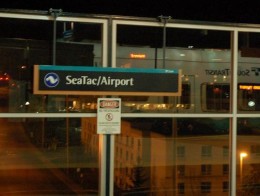An Effort to Raise the Minimum Wage in a Mostly Blue Collar Community

The state of Washington has the highest minimum wage in the country at $9.19 an hour, and voters in a small city south of Seattle named SeaTac may soon push it up to $15 an hour if voters pass a referendum known as Proposition 1. Many of the people who live in SeaTac work at Seattle-Tacoma International Airport and its nearby hotels earning an estimated $11 an hour for airline related jobs (in comparison, the minimum wage at San Francisco International Airport is $12.93 an hour), and if the proposition passes, it would double the federal minimum wage of $7.25. The editorial board at the New York Times writes:
All of which makes $15 an hour sound too high. Hardly. Over the last half-century, American workers have achieved productivity gains that can easily support a $15-an-hour minimum wage. In fact, if the minimum wage had kept pace over time with the average growth in productivity, it would be about $17 an hour. The problem is that the benefits of that growth have flowed increasingly to profits, shareholders and executives, not workers. The result has been bigger returns to capital, higher executive pay — and widening income inequality.
Efforts by the states and the federal government to raise the minimum wage are an important way to counter that dynamic.
It’ll be interesting to see if the referendum passes at SeaTac, and if so, what kind of difference raising the minimum wage in a mostly blue-collar community makes.
Photo: Spencer Thomas
Support The Billfold
The Billfold continues to exist thanks to support from our readers. Help us continue to do our work by making a monthly pledge on Patreon or a one-time-only contribution through PayPal.
Comments